Apr
23
2024
 The most recent episode of John Oliver, Last Week Tonight, featured a discussion of the UFO phenomenon. I’m always interested, and often disappointed, in how the mainstream media portrays skeptical topics. One interesting addition here is that Oliver actually referenced an SGU episode, the one in which we interviewed Jimmy Carter about his UFO sighting. Unfortunately the rest of the episode was a bit of a let down.
The most recent episode of John Oliver, Last Week Tonight, featured a discussion of the UFO phenomenon. I’m always interested, and often disappointed, in how the mainstream media portrays skeptical topics. One interesting addition here is that Oliver actually referenced an SGU episode, the one in which we interviewed Jimmy Carter about his UFO sighting. Unfortunately the rest of the episode was a bit of a let down.
Oliver is the first to acknowledge that he is not a journalist. He’s a comedian. But comedians often give biting satire of our culture and society, and Oliver has developed a specific niche. He essentially picks a topic and makes the point that – we’re doing it wrong, we can do better. Oliver also has a staff of researchers, so he is not jut making stuff up or giving superficial observations. In general I find he does an excellent job, giving a descent overview of a topic and making important observations. But of course many of the topics he covers are too complex to do justice in a 20 minute comedy routine, but he usually manages to hit the important points.
His piece of UFOs was very typical of his general approach. All storytellers (whether you are a journalist, blog writer, or comedian) have a narrative, some organizing point or argument that you are making. Otherwise a piece is just a list of facts or assertions. Oliver’s series has a narrative (as I said, we’re doing it wrong), and each episode has a narrative within that framework. For the UFO piece his main narrative was that the US government is doing UFO research wrong, and this is being driven by the underlying fact that most people interested in UFOs fall into one of two groups, true believers or hardline skeptics. True believers will believe anything, no matter how ridiculous, and hardline skeptics just roll their eyes dismissively, chilling genuine research.
Continue Reading »
Mar
12
2024
 In response to a recent surge in interest in alien phenomena and claims that the US government is hiding what it knows about extraterrestrials, the Pentagon established a committee to investigate the question – the All-Domain Anomaly Resolution Office (AARO). They have recently released volume I of their official report – their conclusion:
In response to a recent surge in interest in alien phenomena and claims that the US government is hiding what it knows about extraterrestrials, the Pentagon established a committee to investigate the question – the All-Domain Anomaly Resolution Office (AARO). They have recently released volume I of their official report – their conclusion:
“To date, AARO has not discovered any empirical evidence that any sighting of a UAP represented off-world technology or the existence a classified program that had not been properly reported to Congress.”
They reviewed evidence from 1945 to 2023, including interviews, reports, classified and unclassified archives, spanning all “official USG investigatory efforts” regarding possible alien activity. They found nothing – nada, zip, goose egg, zero. They did not find a single credible report or any physical evidence. They followed up on all the fantastic claims by UFO believers (they now use the term UAP for unidentified anomalous phenomena), including individual sightings, claims of secret US government programs, claims of reverse engineering alien technology or possessing alien biological material.
They found that all eyewitness accounts were either misidentified mundane phenomena (military aircraft, drones, etc), or simply lacked enough evidence to resolve. Eyewitness accounts of secret government programs were all misunderstood conversations or hearsay, often referring to known and legitimate military or intelligence programs. Their findings are familiar to any experience skeptic – people misinterpret what they see and hear, fitting their misidentified perception into an existing narrative. This is what people do. This is why we need objective evidence to know what is real and what isn’t.
I know – this is a government report saying the government is not hiding evidence of aliens. This is likely to convince no hard-core believer. Anyone using conspiracy arguments to prop up their claims of aliens will simply incorporate this into their conspiracy narrative. Grand conspiracy theories are immune to evidence and logic, because the conspiracy can be used to explain away anything – any lack of evidence, or any disconfirming evidence. It is a magic box in which any narrative can be true without the burden of evidence or even internal consistency.
Continue Reading »
Sep
07
2023
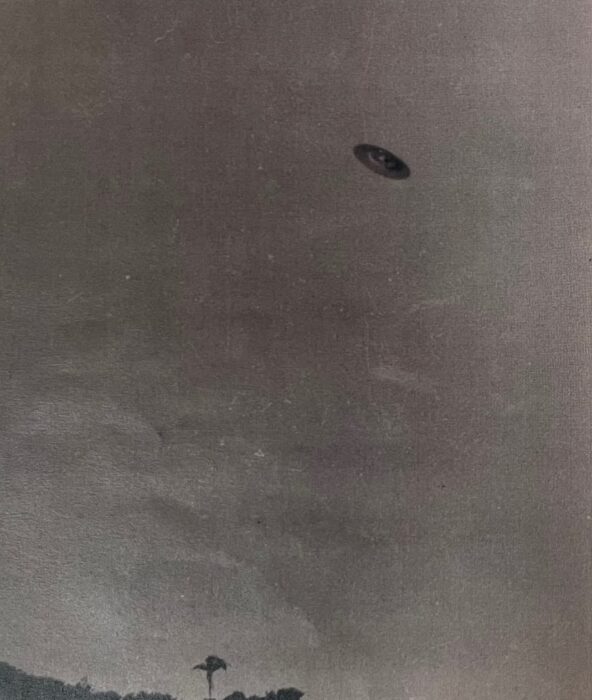 Nothing about the recent resurgence in interest in UFOs (now called UAPs for unidentified anomalous phenomena) is really new. It’s basically the same stories with the same level of completely unconvincing evidence. But what is somewhat new is the level of credulity and outright journalistic fail with which the mainstream media is reporting the story. I’m not talking about fringe media or local news but major news outlets. Take this recent article in the Washington Post, for example.
Nothing about the recent resurgence in interest in UFOs (now called UAPs for unidentified anomalous phenomena) is really new. It’s basically the same stories with the same level of completely unconvincing evidence. But what is somewhat new is the level of credulity and outright journalistic fail with which the mainstream media is reporting the story. I’m not talking about fringe media or local news but major news outlets. Take this recent article in the Washington Post, for example.
The main point of the article is that in the US information about UAPs is often classified, but this is not the case in many other countries. Author Terrence McCoy then focuses on Brazil, telling some of the UAP stories that have come out of this country. McCoy breathlessly tells these stories without capturing the real context here, missing the significance of his own premise. He begins:
Early one August evening in 1954, a Brazilian plane was tracked by an unidentified object of “strong luminosity” that didn’t appear on radar. Two decades later, a river community in the northern Amazon jungle was repeatedly visited by glowing orbs that beamed lights down onto the inhabitants. In 1986, more than 20 unidentified aerial phenomena lit up the skies over Brazil’s most populous states, sending the Brazilian air force out in pursuit.
The stories are not the ravings of a UFO buff. They are official assessments by Brazilian pilots and military officers — who often struggled to put into words what they’d seen — and can be found in Brazil’s remarkable historical archive of reported UFO visitations.
This pretty much sets the tone for the article. There is a reason the US is very protective of a lot of information that winds up in UAP reports – we have a vast intelligence and monitoring network. Our military and intelligence officers do not want other countries to know the details of that network – so often, what the government is hiding is not the content of the monitoring but the mere fact of our monitoring capability. Then, of course, throughout recent decades there have been many classified military systems, the kind that can create UAP sightings, and the government is not about to say – “That wasn’t an alien spacecraft, it was our new super secret spy plane.”
Continue Reading »
Jun
22
2023
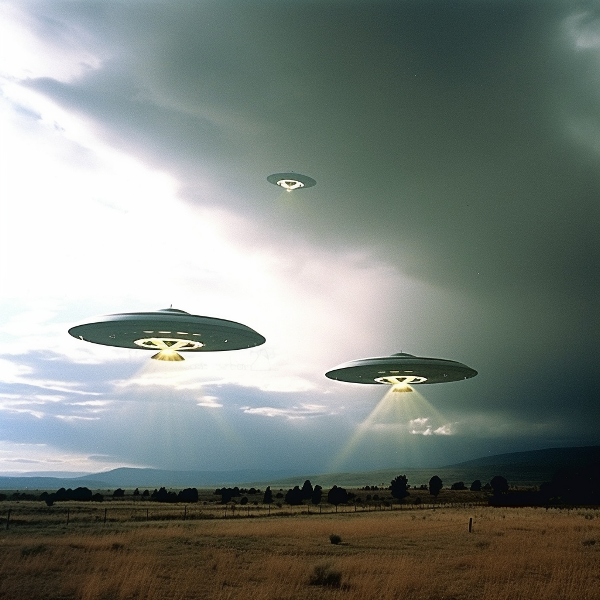 In an interview for Newsweek, Michio Kaku was asked about UFOs. Here’s his response:
In an interview for Newsweek, Michio Kaku was asked about UFOs. Here’s his response:
Well, first of all, I think that there’s been a game changer. In the old days, the burden of proof was on the true believers to prove that what they saw last night was a flying saucer of some sort. Now the burden of proof has shifted. Now it’s the military, the military has to prove that these aren’t extraterrestrial objects.
He goes on to say that there are now multiple lines of evidence that need to be explained, and that this is the “gold standard” in science. It’s a good example of the fact that scientists and science communicators are not necessarily good scientific skeptics who know how to deal with fringe claims. There is an entirely different skill set and knowledge base necessary to deal with the UFO question than to explain physics to a lay audience. To illustrate, I am going to outline why I strongly disagree with Michio.
Let me start with two premises that I think should be noncontroversial. The first is that there is a phenomenon of alleged encounters with aliens – sightings, stories of abductions, videos and photographs, alleged government cover-ups, and others. We can stipulate that people see things they can’t explain and tell stories of alien encounters (sometimes under hypnosis). I will refer to this collectively as the “UFO phenomenon”. The second premise might get some pushback from believers, but I think is completely reasonable – there is no smoking gun unequivocal evidence that aliens are visiting or have visited the Earth. If there were, there would be no debate. You can still believe that the evidence favors the conclusion that we are being visited, that at least some of the UFO phenomena is produced by actual aliens, while accepting the premise that there is no undeniable proof.
If you accept these two premises – there is a UFO phenomenon in the absence if iron-clad proof – then we can talk about competing hypotheses to explain these premises. There are two main contenders. The first is what I have called the “psychocultural” hypothesis. This contends that all UFO phenomena are a mix of misidentified natural or terrestrial phenomena, the many mechanisms of self-deception, cultural belief, delusion, and opportunism. The second is the alien hypothesis, that at least some UFO phenomena are alien craft, encounters with aliens, crashed saucers, or alien experiments. There are other hypotheses (the tongue-in-cheek psychic bigfeet from the future), but they are fringe enough that we can ignore them for now, and in fact I feel they can be subsumed in this debate under the alien hypothesis.
Continue Reading »
Jun
08
2023
 How seriously should we take the claims of David Grusch? He is an airforce veteran and former member of the UAP (unidentified aerial phenomena) task force, which is enough to at least hear him out. He gave an exclusive interview to journalist Ross Coulthart from NewsNation, part of which has been made public. This is sure to stoke the flames of UFO conspiracy theorists, and the media is, of course, loving it. But what is he actually saying, and what is the evidence?
How seriously should we take the claims of David Grusch? He is an airforce veteran and former member of the UAP (unidentified aerial phenomena) task force, which is enough to at least hear him out. He gave an exclusive interview to journalist Ross Coulthart from NewsNation, part of which has been made public. This is sure to stoke the flames of UFO conspiracy theorists, and the media is, of course, loving it. But what is he actually saying, and what is the evidence?
Grusch claims that the UAP task force, which was renamed the All-domain Anomaly Resolution Office (AARO), was not given information that there is a super secret government program for the retrieval and study of “non-human exotic craft” – basically alien spacecraft. This secret program has been operating for decades and has even been hidden from Congress, and therefore has no congressional oversight. He claims to have “proof” that this secret agency exists, although he is not at liberty to reveal any of this evidence for national security reasons. This is really the only claim for which he states he has actual evidence – that such an organization exists within the US government, hidden from Congress and the public.
But he goes further to claim that this program has recovered many crashed or abandoned craft, they have been working to study and reverse-engineer the technology, that they have also recovered alien bodies, and that this has been going on for decades. Further, many other countries have similar programs and have also recovered alien craft, creating a race to reverse engineer the technology for strategic advantage. He has no evidence that any of this is true, nor has he seen any such evidence himself. He is basing this entirely on hearsay – what he claims other intelligence officers have told him.
I have many questions, and I remain profoundly skeptical of these claims. The overall story does not sound credible or make sense. But let’s break it down a bit.
Continue Reading »
Mar
20
2023
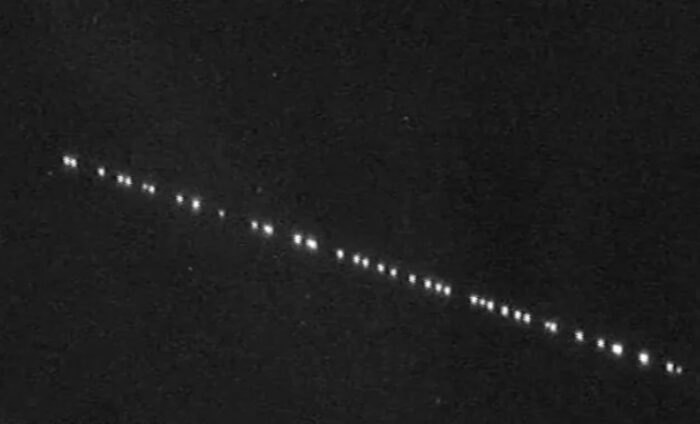 Did UFO reporting increase during the pandemic? A group of researchers set out to answer that question, and recently published their results. Their hypothesis was two-fold, including the notion that people had more free time during the shutdown and perhaps spent more time out doors, and therefore had a greater opportunity to see anomalous things in the sky. I would add that more free time might also mean a greater chance of bothering to report what they saw to one of the national UFO networks. The second hypothesis is that the pandemic was associated with an increase in anxiety, and anxiety makes people more alert and attentive. People might therefore be checking out their environment more and noticing anomalies that would otherwise have escaped their attention.
Did UFO reporting increase during the pandemic? A group of researchers set out to answer that question, and recently published their results. Their hypothesis was two-fold, including the notion that people had more free time during the shutdown and perhaps spent more time out doors, and therefore had a greater opportunity to see anomalous things in the sky. I would add that more free time might also mean a greater chance of bothering to report what they saw to one of the national UFO networks. The second hypothesis is that the pandemic was associated with an increase in anxiety, and anxiety makes people more alert and attentive. People might therefore be checking out their environment more and noticing anomalies that would otherwise have escaped their attention.
It’s interesting that their hypothesis (the pandemic lead to more UFO reporting) is agnostic toward the question of what UFOs (using the traditional term, as the study does) actually are. It treats them as just unknown anomalies. Whether or not UFOs generally represent terrestrial phenomena or alien phenomena, sightings might increase for the above reasons. To answer that question we need other information.
In 2000 I proposed the term the psychocultural hypothesis to explain what UFO sightings and related phenomena represent. The PCH posits that the UFO phenomenon is caused entirely by cultural and psychological factors and not by anything alien or even truly anomalous (meaning that it represents an entirely unknown phenomenon – no psychic bigfeet from the future or Atlantean ghosts). There is the background of mundane activity, including weather, astronomical, and human technological phenomena. This is the background noise, which people often misperceive and then overlay a cultural belief system. People never see spaceships – they see blobs, lights, indistinct images, or something at the edge of perception, and then they fit that experience into their pre-existing cultural beliefs.
They may say explicitly that they think it is aliens, or they may do the, “I’m not saying it’s aliens, but it’s aliens” thing. In other words, they may not specifically claim that what they experienced or the evidence being presented is definitely alien, they will just say that it is “anomalous” or “unidentified” or somehow mysterious. They will then often go from unexplained to unexplainable. The psychological game is to just leave it at that, but what they are really doing is creating the space in which aliens might exist. At the end of the day, it’s all about the aliens.
Continue Reading »
Jun
20
2022
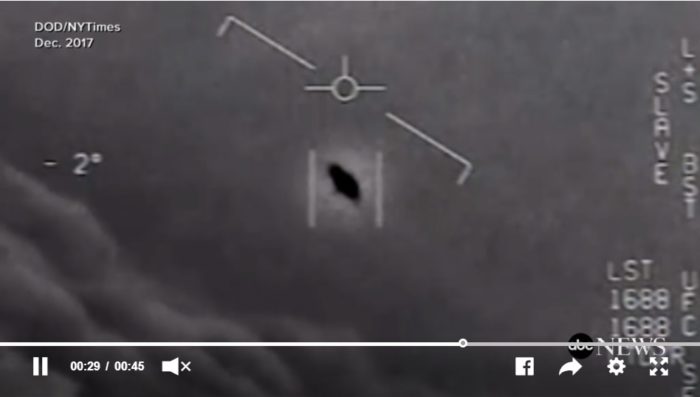 NASA announced earlier this month that it will be joining the investigation of so-called “Unidentified aerial phenomena” or UAPs (replacing the older term, UFOs). This has rekindled the debate over what UAP are and what our attitude toward them should be. The topic delights the press, who can’t resist the notion that official are investigating something apparently fantastic, and they are generally doing a poor job of putting the phenomenon into context. Meanwhile, some people who should know better are sensationalizing UAPs and misrepresenting the state of the evidence.
NASA announced earlier this month that it will be joining the investigation of so-called “Unidentified aerial phenomena” or UAPs (replacing the older term, UFOs). This has rekindled the debate over what UAP are and what our attitude toward them should be. The topic delights the press, who can’t resist the notion that official are investigating something apparently fantastic, and they are generally doing a poor job of putting the phenomenon into context. Meanwhile, some people who should know better are sensationalizing UAPs and misrepresenting the state of the evidence.
Most notable among them is Michio Kaku, who has said in interviews that the evidence is so compelling the burden of proof has now shifted to those saying UAPs are not alien spacecraft. This is horribly wrong for multiple reasons. Neil deGrasse Tyson, on the other hand, pretty much nails it in this brief interview. His main points are – the quality of the evidence is extremely poor, despite the fact that there are millions of high resolution photos and video including rare phenomenon uploaded to the internet daily, so we have to rule out mundane phenomena first.
If nothing else UAPs present an excellent opportunity for skeptical analysis and showing why critical thinking is so important. As you may have guessed, I am not impressed with the notion that UAPs are evidence of anything extraterrestrial. Let me first, however, dispense with a common strawman in the reporting – the idea that investigating UAPs is itself unscientific or shameful. I don’t know of anyone making this argument. Even hardened skeptics are all for doing the investigations. We want the investigations – how else will we have data to analyze. We want to understand the phenomenon as well as possible. In fact, attaching any stigma to merely investigating unusual phenomena is really harmful. It pretty much ensures that serious scientists will stay away, and cede the ground to cranks and amateurs. So let’s please dispense with this silly notion, and the mainstream media can stop wringing their hands over it in every article.
Continue Reading »
May
24
2021
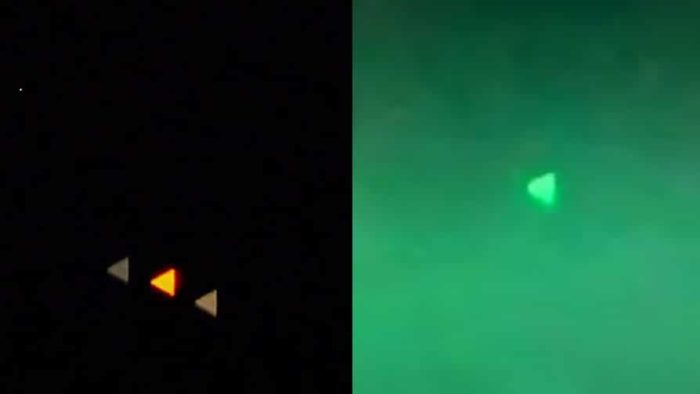
One of the unofficial functions of the skeptical movement is to serve as a form of institutional memory. Pseudoscience tends to come around in cycles. Each generation or two gets fascinated with the same topics only to eventually tire of them when they ultimately come to nothing. The die-hards stay on and keep the flame going until the next generation. Each time a paranormal or dubious topic rears up again, the same poor evidence, sloppy logic, common myths, gullible journalism, and old tropes are trotted out. This is where skeptics come in. We are like antibodies that remember the history and can respond to the nonsense much more quickly and effectively.
Fascination with UFOs (unidentified flying objects) has waxed and waned a few times over the last 60 years. After a relatively quiet period interest is once again peaking. While “UFO” simply refers to something in the sky we cannot identify, everyone knows we are really talking about alien spacecraft. Whether you want to be coy, technical, or explicit – that is always what people are really talking about. This time the government appears to be the cause of increased interest, which is a break from the standard narrative that the government knows all about it and is covering it up.
In 2007 Senator Harry Reid wanted to know if there was anything to the whole UFO thing. This lead to Pentagon investigations and eventually the formation of the Unidentified Aerial Phenomena Task Force (UAPTF). Next month they are due to give their official report to congress, and that is what has journalists all aflutter. They love stories like this – you can have serious-sounding people with connections to government talking about UFOs (now UAPs), and always there is the idea in the background that these can be aliens. The government officials won’t ever endorse – or deny – that idea. They take the coy route. We just want to know what’s going on. There is something interesting happening. Their answers seem like a wink and a nod. The journalists can tell a sensational story with plausible deniability, and never have to dig deep enough to tell the real story.
Continue Reading »
Dec
08
2020
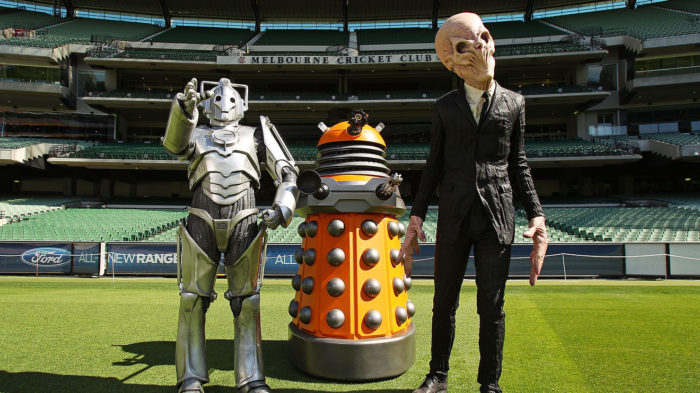 There is a common pattern in the dubious claims made for pseudosciences and bogus belief – whenever pushed for compelling evidence, excuses are offered instead. The evidence is being covered up by a conspiracy, science cannot detect this phenomenon yet, the phenomenon is not reliable or fades in the presence of skeptics, the tape was erased (I literally heard that one), or perhaps the world is just not ready for the amazing truth. Of course the people making these claims – they know, because they are special in some way.
There is a common pattern in the dubious claims made for pseudosciences and bogus belief – whenever pushed for compelling evidence, excuses are offered instead. The evidence is being covered up by a conspiracy, science cannot detect this phenomenon yet, the phenomenon is not reliable or fades in the presence of skeptics, the tape was erased (I literally heard that one), or perhaps the world is just not ready for the amazing truth. Of course the people making these claims – they know, because they are special in some way.
Perhaps one of the weakest excuses is the notion that extraterrestrial aliens exist and are visiting the Earth, but their presence is being covered up because “the world just isn’t ready for them.” This is usually offered as an obvious statement of fact, coupled with the promise that when the world is ready, they will reveal themselves. To me this is nothing but mystery-mongering nonsense and special pleading. These claims were also recently repeated by “retired Israeli general and current professor Haim Eshed.” He claims that Israel and the US have been in contact with aliens for years:
“But Eshed insists that Trump is aware of them, and that he was “on the verge” of disclosing their existence. However, the Galactic Federation reportedly stopped him from doing so, saying they wished to prevent mass hysteria since they felt humanity needed to “evolve and reach a stage where we will… understand what space and spaceships are,”
I don’t know if something is being lost in translation here (either from Alien to Earthican, or from Hebrew to English), but I think we know what space is, and have a pretty good idea what spaceships are. The claim that there will be “mass hysteria” is, of course, unfalsifiable (until we actually do encounter space aliens). This is nothing but a prediction based upon subjective opinion. I also don’t think it’s terribly plausible.
Continue Reading »
Jun
02
2020
A recent interview published in Scientific American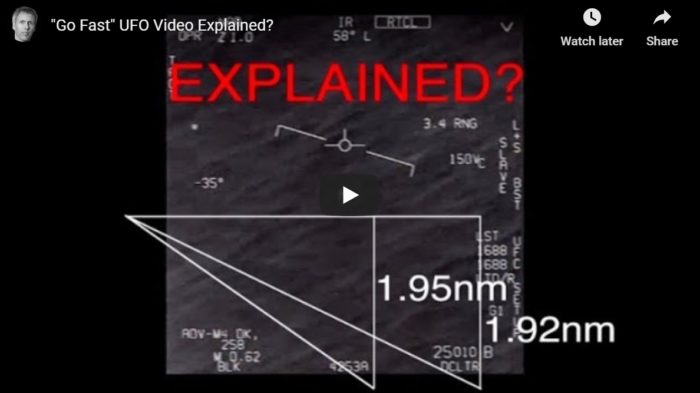 is a good case study in what can happen when you have journalism without skepticism. By skepticism I mean a working knowledge of the discipline of scientific skepticism, which combines our current understanding of the philosophy of science, the nature of pseudoscience, critical thinking, mechanisms of self-deception, deliberate deception, and specific knowledge about individual pseudoscientific and paranormal topics.
is a good case study in what can happen when you have journalism without skepticism. By skepticism I mean a working knowledge of the discipline of scientific skepticism, which combines our current understanding of the philosophy of science, the nature of pseudoscience, critical thinking, mechanisms of self-deception, deliberate deception, and specific knowledge about individual pseudoscientific and paranormal topics.
The interview was conducted by John Horgan, who I have trashed in the past for criticizing skepticism while demonstrating an almost complete ignorance of it. The subject of the interview was Leslie Kean, a journalist who has written a book on UFOs and another on life after death. Doing a deep dive into these two issues is beyond this one article, and they have already been covered at length here and elsewhere. I want to focus on what the interview itself reveals.
Kean appears to take a solid journalistic approach to these issues, but there is a massive hole in her approach. She does not seem to be aware that there is already a thorough investigation into these questions, showing convincingly in my opinion that they are not genuine. She ignores it because she thinks she already understands it, when she doesn’t – so she is missing the skeptical take on these issues. She is dismissive of skeptics as deniers and as closed-minded. She then goes on to make rookie mistakes, that any well-informed skeptic could have pointed out to her. The result is a repetition of long debunked fallacious arguments, but with a patina of serious journalism.
Continue Reading »
 The most recent episode of John Oliver, Last Week Tonight, featured a discussion of the UFO phenomenon. I’m always interested, and often disappointed, in how the mainstream media portrays skeptical topics. One interesting addition here is that Oliver actually referenced an SGU episode, the one in which we interviewed Jimmy Carter about his UFO sighting. Unfortunately the rest of the episode was a bit of a let down.
The most recent episode of John Oliver, Last Week Tonight, featured a discussion of the UFO phenomenon. I’m always interested, and often disappointed, in how the mainstream media portrays skeptical topics. One interesting addition here is that Oliver actually referenced an SGU episode, the one in which we interviewed Jimmy Carter about his UFO sighting. Unfortunately the rest of the episode was a bit of a let down.
 In response to a recent surge in interest in alien phenomena and claims that the US government is hiding what it knows about extraterrestrials, the Pentagon established a committee to investigate the question – the All-Domain Anomaly Resolution Office (AARO). They have recently released
In response to a recent surge in interest in alien phenomena and claims that the US government is hiding what it knows about extraterrestrials, the Pentagon established a committee to investigate the question – the All-Domain Anomaly Resolution Office (AARO). They have recently released  Nothing about the recent resurgence in interest in UFOs (now called UAPs for unidentified anomalous phenomena) is really new. It’s basically the same stories with the same level of completely unconvincing evidence. But what is somewhat new is the level of credulity and outright journalistic fail with which the mainstream media is reporting the story. I’m not talking about fringe media or local news but major news outlets.
Nothing about the recent resurgence in interest in UFOs (now called UAPs for unidentified anomalous phenomena) is really new. It’s basically the same stories with the same level of completely unconvincing evidence. But what is somewhat new is the level of credulity and outright journalistic fail with which the mainstream media is reporting the story. I’m not talking about fringe media or local news but major news outlets.  In
In How seriously should we take
How seriously should we take Did UFO reporting increase during the pandemic? A group of researchers set out to answer that question,
Did UFO reporting increase during the pandemic? A group of researchers set out to answer that question,  NASA
NASA 
 There is a common pattern in the dubious claims made for pseudosciences and bogus belief – whenever pushed for compelling evidence, excuses are offered instead. The evidence is being covered up by a conspiracy, science cannot detect this phenomenon yet, the phenomenon is not reliable or fades in the presence of skeptics, the tape was erased (I literally heard that one), or perhaps the world is just not ready for the amazing truth. Of course the people making these claims – they know, because they are special in some way.
There is a common pattern in the dubious claims made for pseudosciences and bogus belief – whenever pushed for compelling evidence, excuses are offered instead. The evidence is being covered up by a conspiracy, science cannot detect this phenomenon yet, the phenomenon is not reliable or fades in the presence of skeptics, the tape was erased (I literally heard that one), or perhaps the world is just not ready for the amazing truth. Of course the people making these claims – they know, because they are special in some way.





